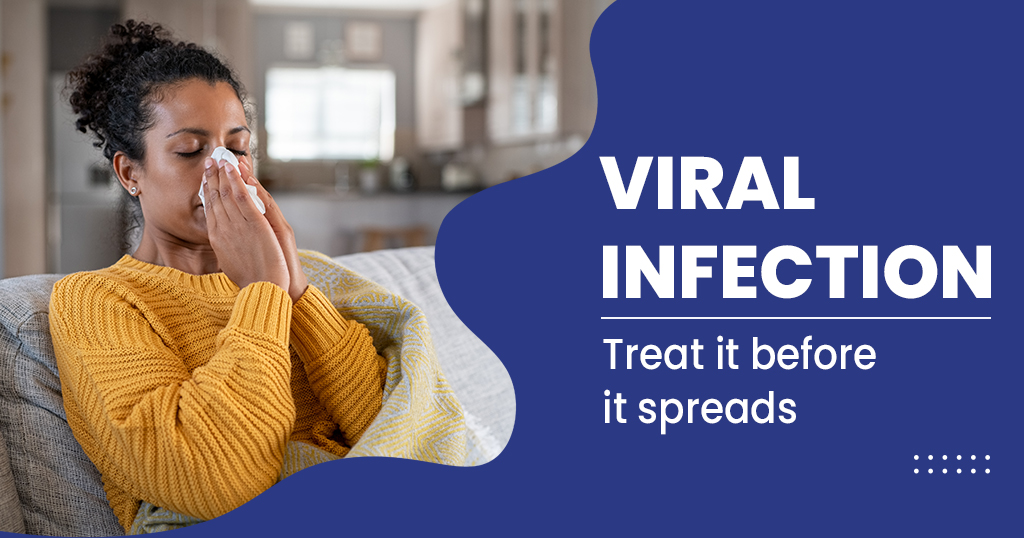Steps to Feel Better After a Viral Infection
Steps to Feel Better After a Viral Infection
Viral infections, from the common cold to the flu, can be frustrating and sometimes debilitating. Knowing how to manage symptoms, bolster your immune system, and reduce the infection’s impact can make a huge difference in recovery. Below are practical strategies for overcoming viral infections effectively and safely.
1. Hydrate Consistently
When fighting a virus, the body needs extra fluids to stay balanced and flush out toxins. Water, herbal teas, and broths are all excellent choices. They:
- Help thin mucus, making it easier to expel.
- Prevent dehydration, which can worsen symptoms.
- Support cellular functions essential for the immune system.
Tip: Avoid caffeinated or sugary drinks, which can dehydrate you.
2. Prioritize Rest and Sleep
Sleep and rest are vital for immune system efficiency. While asleep, your body can allocate more energy toward fighting off the infection. Here’s how rest aids recovery:
- Boosts immune cell activity.
- Reduces stress, which can hinder immune function.
- Allows the body to repair and regenerate.
Aim for at least 7-8 hours of sleep each night, or even more if possible during infection.
3. Boost Nutrient Intake
Certain vitamins and minerals are key in fighting infections. Foods rich in Vitamin C, Vitamin D, Zinc, and antioxidants help in strengthening your immune response.
- Vitamin C (found in citrus fruits, strawberries, and bell peppers) can reduce cold duration.
- Zinc (in nuts, seeds, and meats) plays a crucial role in immune function and may reduce symptom severity.
- Vitamin D (from sun exposure or supplements) is shown to reduce the frequency of respiratory infections.
Tip: Eat a diet rich in fruits, vegetables, and whole foods, avoiding overly processed items.
4. Practice Good Hygiene
Viruses spread easily, so maintaining good hygiene protects you and others:
- Wash hands regularly with soap and water, especially after coughing or sneezing.
- Avoid touching your face, particularly eyes, nose, and mouth.
- Use hand sanitizers with at least 60% alcohol when soap isn’t available.
5. Stay Isolated if Necessary
If symptoms are active, such as coughing, sneezing, and fever, isolation is a considerate and effective way to prevent spreading the virus. It also allows you to rest without overextending yourself.
Tip: Make sure to keep a distance of at least six feet from others to reduce the risk of virus transmission.
6. Use Over-the-Counter (OTC) Remedies Wisely
Some OTC medications can help alleviate symptoms, making recovery more comfortable. Common options include:
- Pain relievers (acetaminophen or ibuprofen) for headaches and body aches.
- Decongestants for nasal congestion.
- Cough syrups or lozenges to soothe the throat.
Consult a healthcare provider if you have any pre-existing conditions or if symptoms persist.
7. Consider Medical Help When Necessary
If symptoms worsen or are prolonged, such as high fever, difficulty breathing, or chest pain, seek medical care promptly. A doctor can prescribe antiviral medications if appropriate, or test for complications.
8. Practice Preventative Measures in Daily Life
Preventing viral infections is better than treating them. Implement habits that reduce the risk of infection:
- Stay vaccinated against viruses like influenza.
- Practice a balanced lifestyle that includes regular exercise, stress management, and a nutritious diet.
- Stay informed about seasonal viral outbreaks to take additional precautions.
Final Thoughts
Viral infections can be challenging, but with the right practices, you can manage and even shorten the duration of symptoms. Remember, a strong immune system, paired with good health habits, is your best defense against viral threats.


.jpeg)

Comments
Post a Comment